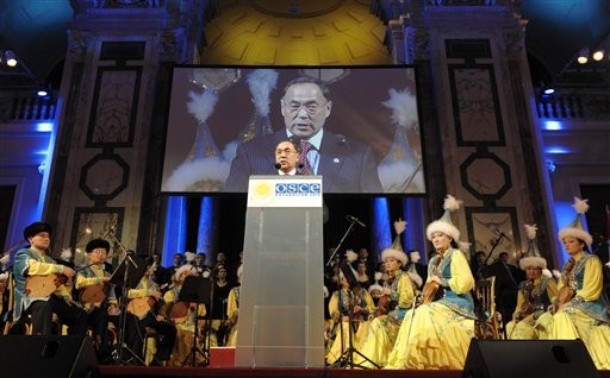
Dr. Boyko Nitzov, Director of Programs for the Atlantic Council’s Dinu Patriciu Eurasia Center, was interviewed by Aliyah Fridman for Azerbaijan’s News.Az.
How would you comment on Kazakhstan’s refusal to export its oil via BTC pipeline?
If the question is about the suspension of crude oil exports from Kazakhstan in mid-February 2010, then I don’t think it is Kazakhstan’s decision in the first place. The oil that comes from Kazakhstan and is exported via BTC is from Tengiz, which is operated by Tengizchevroil (TCO), and it is TCO (not Kazakhstan) who said the company will suspend (not “refuse”) sending oil to markets via BTC. The quantities in question are minor (less than 2 million tons during the entire 2009) and the suspension of shipments by TCO via BTC was apparently due to commercial reasons, such as disagreements regarding the tariffs charged by BTC. It is likely that shipments will resume once the parties reach an agreement on tariffs – some reports claim that this is about to happen or has already happened.
Do you see political reasons in this decision?
No. It is a purely commercial issue.
Are you sure that Astana will succeed to overcome Russia’s pressure on Kazakhstan’s energy policy?
Kazakhstan has for a long time now been making its own decisions regarding energy policy and I don’t think anyone – be it Russia or someone else – has the clout to corner Kazakhstan into making decisions that Kazakhstan does not want to make. Russia and Kazakhstan are partners in many energy projects – oil, gas, nuclear energy, electricity – and it is mostly through the prism of partnership and cooperation that the relationship in energy of Kazakhstan with Russia is developing. Please note that Kazakhstan also partners extensively in energy with many other countries and organizations – the U.S., China, Japan, the members of the EU, Turkmenistan and other Central Asian countries, to name a few – and with Azerbaijan of course. In each instance – with each partner – there have been points of disagreement, disputes, setbacks, but ultimately a lot of ground has been covered toward a balanced relationship with Russia and with Kazakhstan’s many other partners in the energy sector. Kazakhstan has followed a pretty successful multi-vector independent policy in general and in the energy sector in particular, and there are few reasons to believe that this policy will all of sudden change now.
President Nazarbayev proposed recently to link Caspian an Black Sea basins by common energy corridor. Is this idea real?
It is not only a “real idea”, but reality. For many years now oil from the east littoral of the Caspian has been reaching Black Sea ports via the route of the corridor, which passes through Azerbaijan. The west Caspian littoral has been linked to markets by major pipelines via the corridor for a long time now. It is a matter of expanding the corridor and making it more efficient, diverse and technically sophisticated, so that greater quantities of energy and greater variety of energy could use it.
What do you expect from Kazakhstan’s chairmanship in OSCE in 2010?
There is a pretty good chance for moving OSCE from ambivalence to relevance and a consolidation of a democratic agenda. A series of meetings and discussions have taken place and are planned ahead of an informal ministerial in Astana due to convene in early June 2010. It will be very interesting to see how OSCE will help restore confidence and take forward dialogue on wider European security, particularly in the context of the Corfu process, but also on many other issues such as protracted conflicts, the economy, the environment, energy security, etc. In Kazakhstan, the chairmanship of OSCE has been described as a national strategic project, and I think every effort will be made in Kazakhstan to perform well in the capacity of chairman of the organization. In short, it is likely that we will witness an enhanced and more effective OSCE, even though many serious challenges are yet to be tackled.
This interview was previously published at News.Az. Photo credit: AP.
Image: osce-saudabayev.jpg
